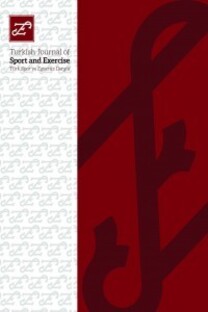The Effects of Vitamin E Application on Some Free Radicals and Lactate Levels in Acute Exercise
The aim of this study is to investigate the effect of vitamin E supplement on elite taekwondo performers who were made to do acute taekwondo exercise on some free radicals. Twenty-four healthy male elite taekwondo performers whose mean age is21.66 ± 1.20 and mean body weight is 72.50 ±8.17 kg participated the study. The study protocol was also endorsed by the ethical board of the same faculty. In the study, the subjects were divided into 2 equal groups. The vitamin E group (Group 1) will be given vitamin E for 4 weeks (300 mg D-alpha- tocopheryl acetate) and will be made to do acute taekwondo exercise once a week till they get tired. The control group (Group 2) is the group who were only made to do acute taekwondo exercise till they got tired once a week for 4 weeks. Taekwondo exercises were carried outfor four weeks and once a week as acute exercises till they got tired. During four weeks of application procedure, malondialdehyde (MDA) and Nitrococsite(NO) levels and plasma lactate (LAC) levels were determined from the blood samples taken from the subjects before the beginning of and at the end of the application and before and after the training. While the highest MDA level was obtained from the 2nd group in the 4th measurement (P<0.05), the lowest MDA level was obtained from 3rd measurement in the 1st group (P<0.05). While the highest NO level was obtained in the 2nd measurement in the 2nd group (P<0.05), the lowest NO level was obtained on the 3rd measurement in the 1st group (P<0.05). While the highest lactate level was obtained in the 2nd measurement in group 1 (P<0.05), the lowest lactate level was in the 3rd measurement in group 1 (P<0.05). As a result, it was determined that vitamin E application prevented free radical formation by increasing antioxidant activity during acute taekwondo exercise and substantially pressurized lactate levels.
Keywords:
Acute exercise; vitamin E; free radicals, ; lactate.,
- Başlangıç: 1999
- Yayıncı: Selçuk Üniversitesi, Spor Bilimleri Fakültesi
Sayıdaki Diğer Makaleler
Sports Education inTurkish Higher Education within European Qualifications Framework
Fehmi ÇALIK, Kürşad SERTBAŞ, Serdar GERİ
Buz Hokeyi Sporunun Ayak Tabanı Temas Alanı ve Maksimal Kuvvete Etkisinin İncelenmesi
Ahmet UZUN, Erdinç ESEN, Latif AYDOS, Metin KAYA, Ulunay KANATLI
Meriç ERASLAN, Seran AKA, Mustafa BAŞ
Meriç ERASLAN, Süleyman CAN, Mustafa BAŞ
Farklı Branşlarla Uğraşan Sporcuların Solunum Fonksiyonlarının Karşılaştırılması
Mehmet ÇEBİ, Tülin ATAN, Pelin AKYOL
Rekreatif Balıkçı Motivasyon Ölçeğinin Geçerlilik Güvenirlik Çalışması
